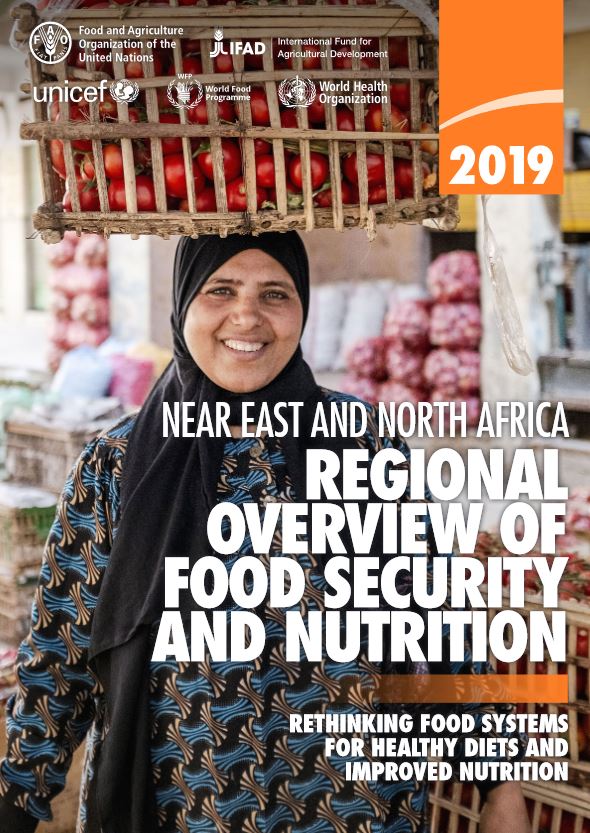 14 May 2020 – Over the past 10 years Arab State food systems have had a mixed record in reaching the goals of food security and nutrition. Though there has been progress in reducing the number of hungry people, much of this was erased by growing conflict in the region since 2010.
14 May 2020 – Over the past 10 years Arab State food systems have had a mixed record in reaching the goals of food security and nutrition. Though there has been progress in reducing the number of hungry people, much of this was erased by growing conflict in the region since 2010.
The region has made tremendous progress in the past three decades in reducing stunting, and premature mortality and morbidity from child and maternal malnutrition. However, in the same period the number of obese and overweight children and adults has continued to grow and premature mortality and morbidity from unhealthy diets and diet-related NCDs are constant.
This year’s "Overview of Food Security and Nutrition" focuses on the transformative vision of the 2030 Agenda for food systems in the Arab States: “sustainable food systems for healthy diets and improved nutrition”.
- Part I analyses the latest indicator data for SDG 2, as well as global nutrition targets agreed by the World Health Assembly. These are supplemented by Global Burden of Disease data to give an overview of the context of changes in the levels of hunger and different forms of malnutrition in the Arab States.
- Part II focuses on the region’s policies to transform food systems to reduce hunger, child and maternal malnutrition and overweight, obesity and NCDs.
- Part III takes up the theme of sustainable food systems for healthy diets, proposing ways to shape food systems to better support safe and healthy diets.
Related report
Near East and North Africa: regional overview of food security and nutrition


